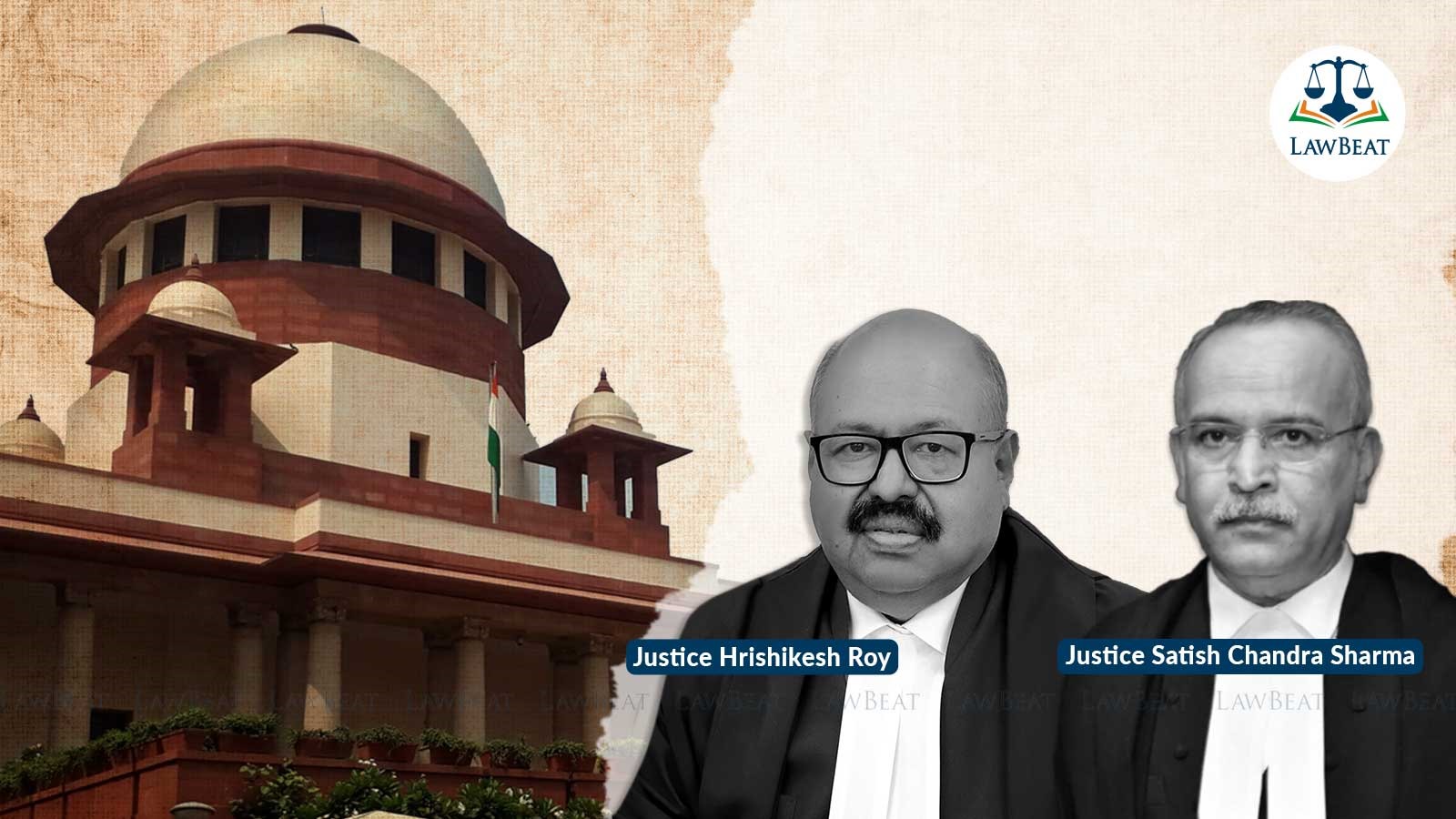'Section 34 requires active participation,' SC acquits murder accused

SC bench said the case materials nowhere indicated the court intended to alter the charge and it was unlikely that the altered charge was formally framed, read out, and explained to the accused
The Supreme Court has said mere common intention per se may not attract Section 34 IPC without action in furtherance of such common intention, while acquitting two persons of the charges of murder.
A bench of Justices Hrishikesh Roy and Satish Chandra Sharma said there is a significant distinction between Section 34 and Section 149 of IPC. Section 34 requires active participation and prior meeting of minds whereas Section 149 assigns liability merely by membership of an unlawful assembly and has a wider scope than Section 34 IPC, the court said.
The bench said a court may alter or add to any charge before judgment is pronounced but when charges are altered, opportunity must be given under Section 217 of the CrPC, both to the Prosecution and the defence, to recall or re-examine witnesses in reference to such altered charges. More importantly, in case, charges are altered by the court, reasons for the same must be recorded in the judgment, it added.
Dealing with an appeal by Madhusudan and others, the bench said, "Before examining the facts, a reiteration of the significant distinction between “common object” and “common intention” would be apposite. Both the trial Court as well as the High Court, it is seen, had mechanically applied Section 34 in place of Section 149 without.any discussion on this aspect."
The court said the trial court has equated “common object” with “common intention”, while analysing the role of the accused and failed to give any reasons in support of the altered conviction.
"While it is true that it is permissible for courts to.alter charges, it can only be done by careful analysis of evidence in the case. It is most essential to identify the ingredients of “common intention”, before implicating any accused with the aid of Section 34 IPC. The existence of common intention in a given case must necessarily be established by the Prosecution with relevant evidence," the bench said.
The bench further said the court also has the responsibility to analyse and assess the evidence before convicting a person with the aid of Section 34 of the IPC. Importantly, a mere common intention per se may not attract Section 34 IPC without action in furtherance of such common intention.
"In the present matter, the court while altering the charge from Section 149 to Section 34 IPC omitted to furnish any reasons. Importantly no charge under Section 34 of the IPC was laid against the accused by the Prosecution. But when the charge under Section 149 IPC was dropped, the trial court decided to conveniently alter the charge and with the aid of Section 34 IPC, ordered for conviction of the accused under Sections 302, 307 and 323 IPC respectively," the court noted.
The bench also pointed out the case materials nowhere indicated the court intended to alter the charge and it was unlikely that the altered charge was formally framed, read out, and explained to the accused.
"A court may alter or add to any charge before judgment is pronounced but when charges are altered, opportunity must be given under Section 217 of the CrPC, both to the Prosecution and the defence, to recall or re-examine witnesses in reference to such altered charges. More importantly, in case, charges are altered by the court, reasons for the same must be recorded in the judgment," the bench said.
In the present case, the court further noted, the accused could not be treated to be members of any unlawful assembly for attraction of vicarious liability for all the members of the unlawful assembly, for acts done in common object.
"Therefore, in order to sustain the conviction with the aid of Section 34 of the IPC, the Prosecution was required to establish common intention of the accused. Unfortunately, the common intention of the appellants was never established by the prosecution to connect them with the crime charged. Moreover, there was no discussion by the court on the aspect of common intention," the bench said.
The bench pointed out the deceased (Gopal) died of multiple injuries and so far as the evidence of the eye-witnesses is concerned, the accused Ram Kripal is shown to have caused injury to Shrikrishna (PW-6) but not to the deceased Gopal.
Likewise, the court found, the prosecution failed to establish for the other two appellants (Ramprakash and Madhusudan) as to which injury is inflicted by which accused on the deceased, which resulted in the death.
In fact, in the absence of any chemical examination of the recovered lathis and swords, the connection of the weapons with the crime is also not established. Moreover, all the recovery witnesses have turned hostile, the court said.
In view of deficiencies in the prosecution, the bench said, "We are persuaded to hold that the appellants are entitled to benefit of doubt and their conviction is unsustainable."
The court accordingly allowed the appeal and ordered their acquittal.
